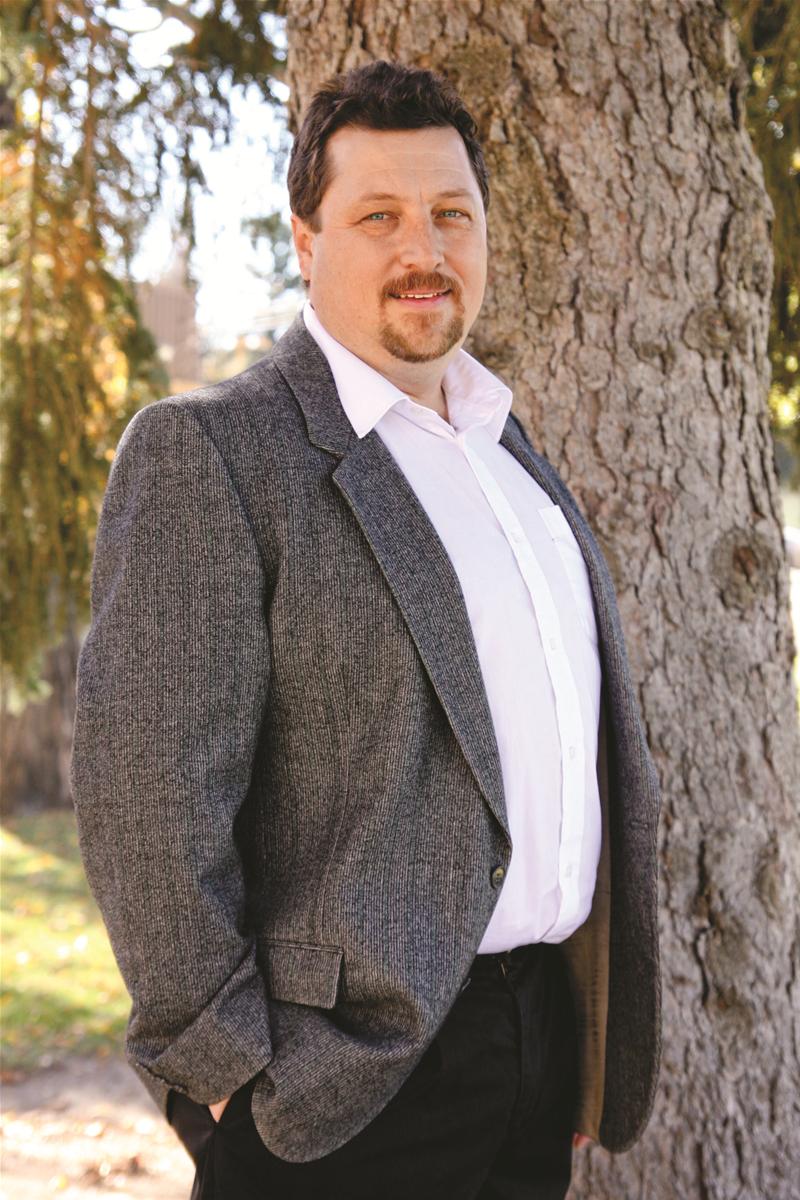The Course of Forgiveness

The process of forgiveness and reconciliation can often be a complicated task to wade through. David Guretzki, professor of theology, church and public life, and Briercrest’s executive lead for strategic and ministry partnership, has written an entire course about it.
“I’ve been working on the topic since at least the late ‘90s,” Guretzki said. “Glenn Runnalls and I originally co-taught the course but then I carried on ever since. The course developed both as a felt need to respond to what Glenn and I felt were some inadequate and harmful ‘pop’ teachings on forgiveness that were circulating even among Christians, but perhaps more importantly, out of an experience of having gone through some significant times of forgiveness and reconciliation in my own life and relationships.”
Interest in the topic is taking the course outside the walls of Briercrest.
InterAct Ministries, an organization that serves indigenous peoples and immigrants across the North Pacific Crescent, has invited Guretzki to teach his four-day course April 8-11 for the professional development of its staff and missionaries at Crossfield Baptist Church in Crossfield, Alta. The general public is also invited to enrol in the class.
Guretzki was invited to teach the course on forgiveness after he spoke on the topic at InterAct’s annual general meeting last summer.
“After speaking, the staff’s interest was sufficiently piqued in the topic that the leadership decided to offer a full four-day course to all their staff,” Guretzki explained. “They felt that it is an area especially needed for missionaries working with First Nations peoples, as many of them are.”
“I think some of what we are hoping to accomplish is to provide an opportunity to see theological teaching interwoven with relational, holistic ministry among First Nations peoples,” Greg Hamilton, administrator in the Canada field office of InterAct ministries explained. “It is a chance to broaden our understanding of God's desire for relationship and intimacy with His creation. The trust relationship between European immigrants and First Nations people has a long history of hurt. This course on forgiveness and reconciliation allows us to develop tools that aid in restoring a relationship of trust in our ministry settings.”
Guretzki sees the course material as a good fit for a professional development seminar.
“It is hard to imagine contexts where relational tensions are absent – even in the smoothest running of Christian organizations,” he said. “Unfortunately, all too often people have only vague and often unbiblical notions of how to resolve conflict, which is really what forgiveness and reconciliation is all about. Worse yet, conflict is often left unresolved and eventually can cause all kinds of damage to an organization, not to mention detracting them from their primary mission.”
The Briercrest professor says his course offers a “biblically-grounded model of reconciliation” that looks at such concepts as confession, repentance, forgiveness, discipline and reconciliation. These concepts are presented in a visual model that can be easily used to assess relational conflict.
“I provide practical steps for helping to move parties forward to reconciliation, or for those who are called upon to mediate disputes or relational dysfunction,” he continued. “The model is, of course, not magical or foolproof and sometimes conflict is simply slow to be resolved because, let’s admit it, we are all sinful and stubborn beings. But at least part of my goal in teaching this material is to point people to the hope we have in the Gospel that teaches that God himself is all about reconciliation. Sometimes the most important step toward reconciliation is starting to believe that God could heal what appears otherwise to be an unhealable relationship.”
Guretzki has seen exciting results in students’ lives as they apply the course material in their own relationships and ministries.
“It’s been really exciting to see how the course content is being used in ways I could never have anticipated,” he said. “I know one student who took the course and is now a professional counsellor. She told me she keeps a copy of the model I have developed in a drawer in her desk and often pulls it out when doing counselling with couples. She has found it often helps people make breakthroughs in figuring out how to move forward in a relationship that seems stuck in unforgiveness, pain and frustration.”
The four-day course is available to the general public both for audit and seminary or college credit. Those wanting to only sit in on the course may contact Greg Hamilton at greg.hamilton@interactministries.org. Those desiring to take the course for seminary or college credit may register by contacting Shirley Entz at sentz@briercrest.ca.
